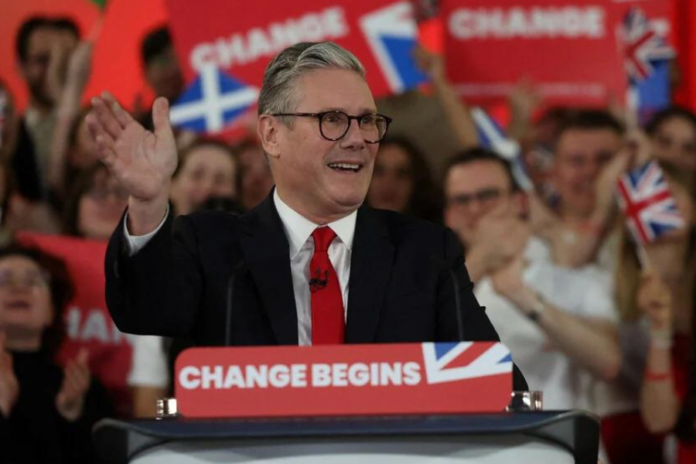Restoring the Labour Party’s relations with India, which have been strained as a result of their comments on Kashmir, will be among Keir Starmer’s first tasks as prime minister of the United Kingdom. In the UK general elections, Starmer led the party to a resounding victory that signalled the end for Rishi Sunak’s Conservative Party.
The Labour Party has faced criticism in the past for its stance on the Kashmir dispute. Their position has been diametrically opposed to the British government’s position, which maintains that Kashmir is an issue between India and Pakistan.
In September 2019, the party, led by Jeremy Corbyn, passed an emergency motion requesting that international observers “enter” Kashmir and demand that its people be granted the right to self-determination.
Additionally, it demanded that Corbyn should meet the high commissioners of Pakistan and India to guarantee “mediation” and the return of peace and normalcy in order to avert a possible nuclear exchange.
India denounced the proposal as an attempt to “pander to vote-bank’s interest”. Acknowledging the significance of connections with the fastest-growing economy globally, Starmer embarked on a quest to rectify the errors committed by his party in the past.
In his manifesto, he emphasized the trade pact and pledged to create a “new strategic partnership” with India. In public speeches and contacts with the Indian diaspora, Starmer reiterated that Kashmir is an internal matter that Pakistan and India would settle.
Starmer launched outreach initiatives during his election campaign, condemning bigotry against Hindus and commemorating Hindu cultural festivals such as Diwali and Holi.
Rebuilding trust with the British-Indian community and fostering deeper business relations with India are the goals of this policy shift, which is an important part of Labour’s foreign policy agenda.
Also, the Labour Party, which has been out of office for more than ten years, has presented a foreign policy of “progressive realism,” which emphasizes practical solutions to major worldwide issues like international security and climate change.
Also Read: How will Keir Starmer win affect India-UK Free Trade Deal?
Plans for a new strategic alliance with India are included in Starmer’s manifesto, with an emphasis on trade deals and collaboration on matters of technology, security, education, and the environment.
Just before five in the morning on Friday, Labour secured the necessary 326 seats for a majority in the House of Commons, solidifying a government shift that has been expected for months but nevertheless represents a stunning comeback for Starmer’s party in just one election cycle. With this, the 14-year Tory rule will come to an end on Friday when Starmer replaces Rishi Sunak as prime minister of Britain.



